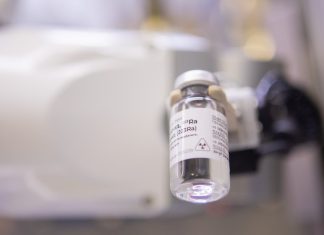Scientists of the Immanuel Kant Baltic Federal University (BFU) have developed a method that increases the efficiency of cardiovascular diseases treatment and also provides an opportunity to determine the patient’s adherence to prescribed drug therapy and find out whether the patient skips taking medications, RIA Novosti reports.
An important area in fighting heart diseases is the prevention of blood clots, including with the help of a long-term treatment with aspirin. However, according to researchers, patients do not always adhere to the treatment, so the actual clinical effectiveness of such treatment is insufficient.
Therefore, a method was proposed for monitoring medication adherence; it is based on the use of nuclear magnetic resonance (NMR) spectroscopy of a blood or urine sample. Thanks to this method, it is possible to quickly detects the presence of the products of various compounds in the body, in particular aspirin.
“We were the first to determine the metabolites of aspirin after administration of therapeutic doses of 100 mg and tracked the dynamics of their excretion. Our method can be used to check the cardiology patients’ adherence to treatment with aspirin or other medications and the effectiveness of the treatment,” Professor Vladimir Rafalsky, director of the Center for Clinical Research of the Kant BFU, commented.
NMR spectroscopy data can be used not only to monitor the quality of therapy, but also to determine individual characteristics of drug metabolism. The process does not require complex sample preparation. In the future, this method may provide the basis for an automatic drug adherence monitoring system.




